12 releases
| 0.2.12 | Apr 22, 2025 |
|---|---|
| 0.2.11 | Nov 10, 2024 |
| 0.2.9 | Sep 9, 2024 |
| 0.2.8 | Aug 1, 2024 |
| 0.1.3 | Jun 5, 2024 |
#1900 in Command line utilities
120 downloads per month
1MB
6.5K
SLoC
Spoify
This is a Rust project that implements a Spotify client within your terminal. It allows you to browse and interact with Spotify directly from the command line.
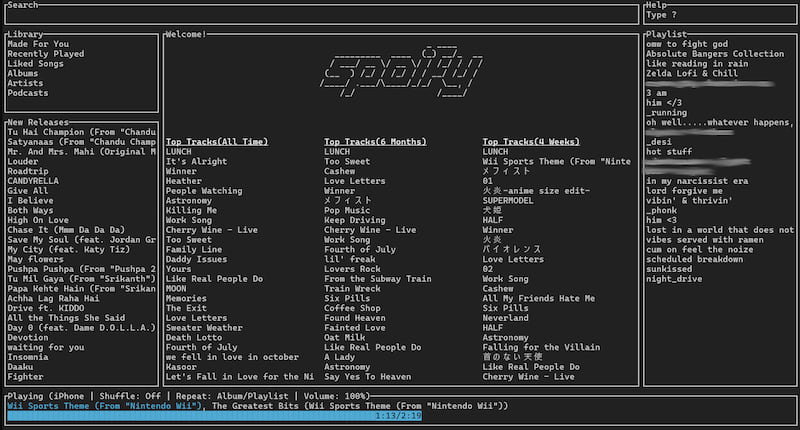
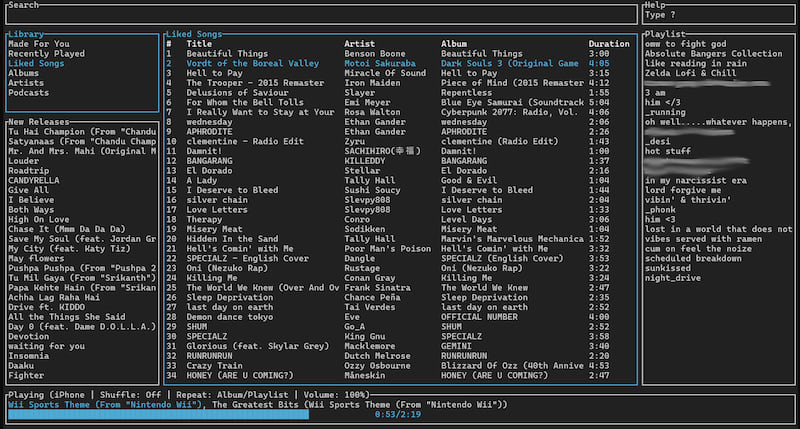
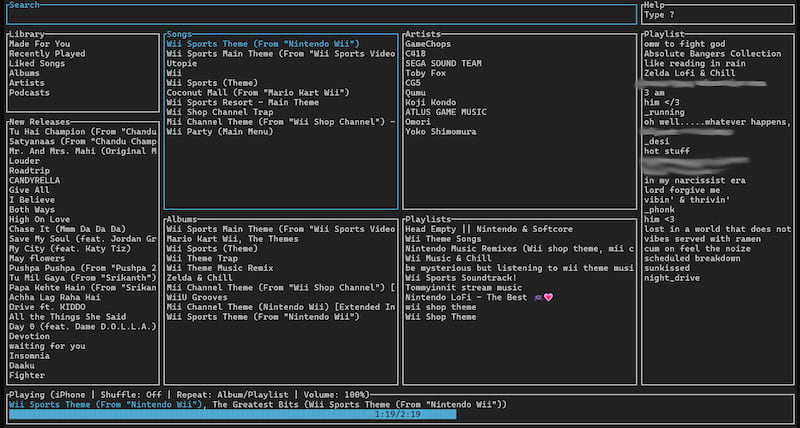
Connecting to Spotify's API
In order for spoify to work it needs to be connected to Spotify's API.
Instruction
- Go to the Spotify dashboard
- Click
Create an app- You now can see your
Client IDandClient Secret
- You now can see your
- Now click
Edit Settings - Add
http://localhost:8888/callbackto the Redirect URIs - Scroll down and click
Save - You are now ready to authenticate with Spotify!
- Enter you
Client IDandClient Secret. - Run
spoify - You will be redirected to an official Spotify webpage to ask you for permissions.
- After accepting the permissions, you'll be redirected to localhost. You'll be redirected to a blank webpage that might say something like "Connection Refused" since no server is running. Regardless, copy the URL and paste into the prompt in the terminal.
There we go, now you can use spoify.
Installation
Cargo
First, install Rust (using the recommended rustup installation method) and then
cargo install spoify
This method will build the binary from source.
To update, run the same command again.
Configuration
You can go to the configure folder and change the theme, keybindings and other related settings of the application.
You can add more themes in the theme folder. Some popular themes already comes with spoify. More will be added time to time.
You can open the configure folder directly through the terminal. Check help menu in the application.
The keybind to open the configure folder is:
~
Themes
A collection of themes that already comes with spoify
Default

Dracula
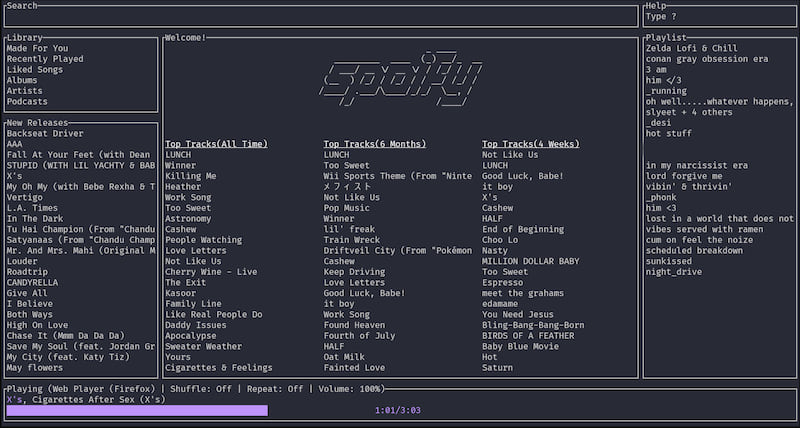
Kanagawa Light
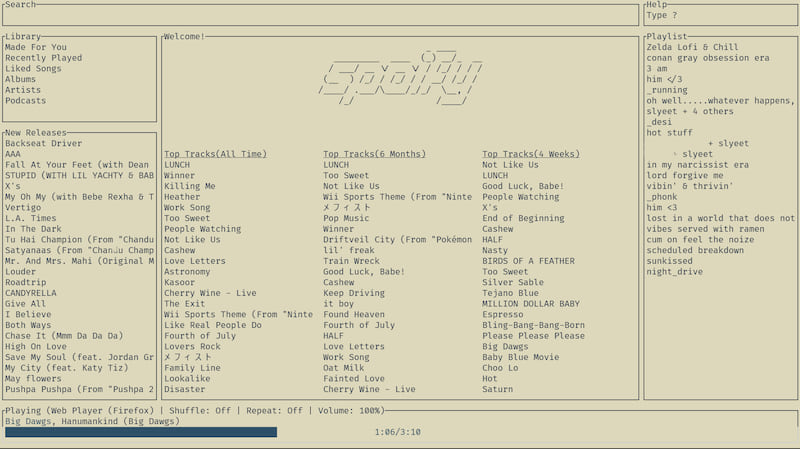
Kanagawa Dark
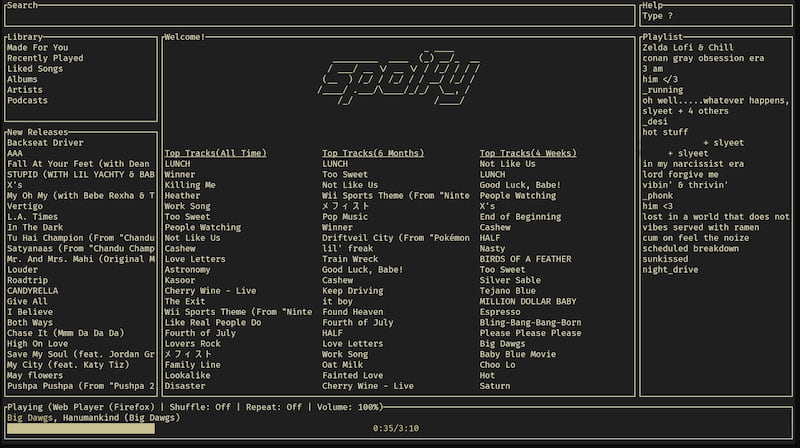
Limitations
This app uses the Web API from Spotify, which doesn't handle streaming itself. So you'll need an official Spotify app open in any device in order to play tracks.
If you want to play tracks or control the playback part, Spotify requires that you have a Premium account.
Libraries used
Dependencies
~19–34MB
~480K SLoC